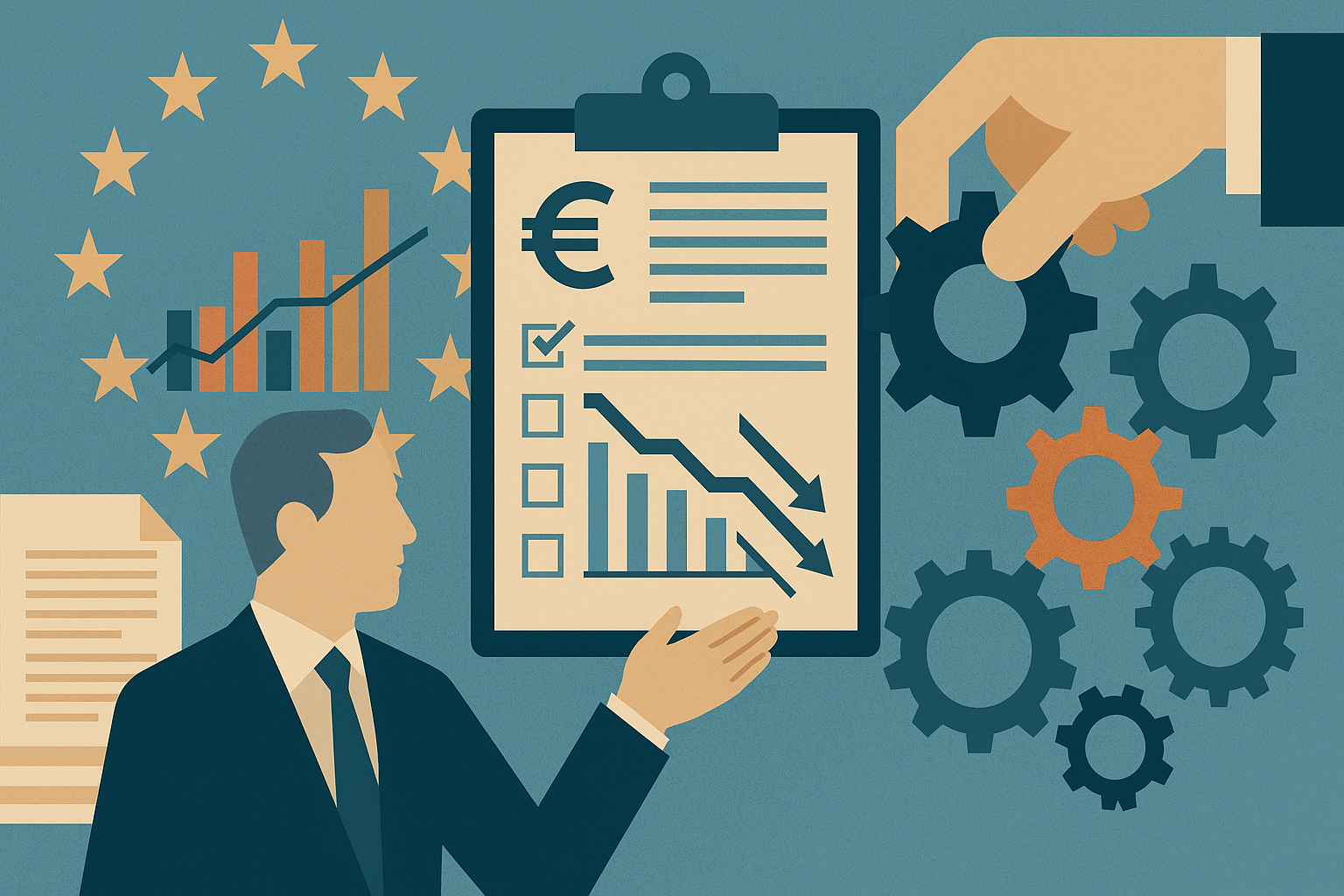Nearly one year after Mario Draghi, the former president of the European Central Bank, published his landmark report on boosting Europe’s competitiveness, the European Union has acted on only a small portion of his recommendations.
Slow Progress on an Urgent Blueprint
Draghi’s 2023 report warned that Europe faced an “existential challenge” in maintaining economic growth and outlined 383 recommendations covering capital markets integration, regulatory alignment, and supply chain resilience. Yet, a new analysis by the European Policy Innovation Council (EPIC) shows that just 11.2% of these proposals have been fully implemented, with about 20% partially addressed.
Most progress has come in areas such as transport and critical minerals. However, key priorities like digitalisation, cleantech investment, and energy reforms remain underdeveloped.
João Cotrim de Figueiredo, vice-president of the liberal Renew group in the European Parliament, accused Commission president Ursula von der Leyen of “dragging on Draghi.” He argued the report should serve as the blueprint for the EU’s mandate, warning that Europe’s sluggish economy demands urgent action. “Europe has its pants on fire,” he said.
Commission Response and Structural Challenges
The European Commission insists it has acted quickly, pointing to initiatives aligned with Draghi’s ideas and promising further steps to strengthen competitiveness.
But experts note a practical obstacle: the report’s size and technical complexity. Antonios Nestoras, EPIC’s founder, explained that tracking implementation has been difficult because of the sheer volume of recommendations.
To measure progress, researchers used an artificial intelligence tool to analyse EU legislative databases, identifying which proposals were moving forward and highlighting where lawmakers and commissioners were adding unnecessary complexity to legal texts.
Broader Economic and Political Context
The debate comes at a time when EU citizens increasingly want the bloc to focus on defence and economic competitiveness, according to a new Eurobarometer survey. Yet, political attention is divided, with trade deals and climate targets dominating the legislative agenda.
For example, the Commission is simultaneously attempting to push through the controversial Mercosur trade agreement, which faces strong opposition from farmers in France, Poland, and Belgium. Meanwhile, climate policy debates show paradoxes: countries like Poland and Hungary, often critical of Brussels’ climate ambitions, are leading the EU in battery manufacturing and cleantech job creation.
The Road Ahead
Draghi’s call for bold reform was framed as a survival strategy for Europe in an era of global competition. One year on, the EU has only inched forward. While some progress is visible in specific sectors, the broader agenda remains largely unfinished.
Whether the next Commission will treat Draghi’s report as a roadmap for Europe’s economic renewal or allow it to fade into another shelved strategy will be a key test of the bloc’s ability to adapt to global pressures.








